The Frozen North: Stunning Images of Russia from Above
Cauldron of Turquoise
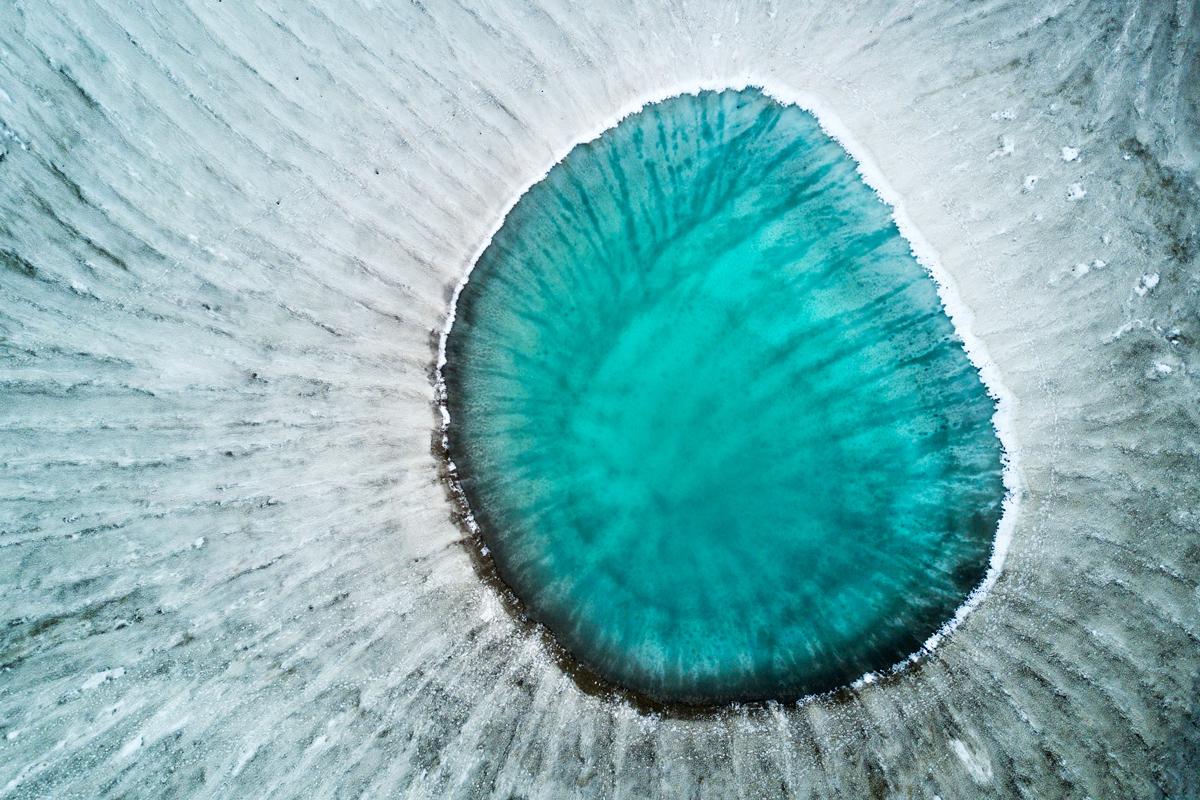
Look into the craters of volcanic Mount Mutnovsky and this lovely turquoise lake of sulfuric acid stares back. Mutnovsky sits near the southern tip of the Kamchatka peninsula, a hotbed of roughly 300 volcanoes.
Oil's Well That Ends Well
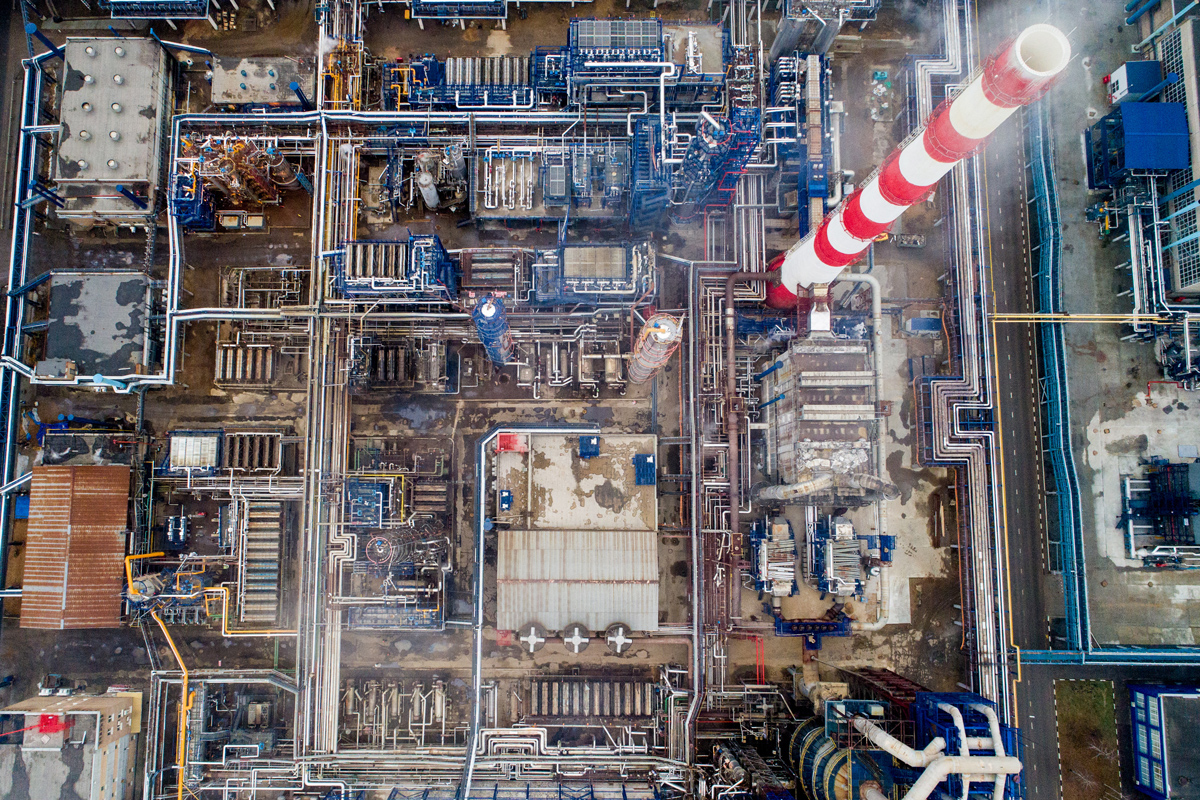
A tower belches smoke over the Moscow Oil Refinery in the Chagino-Kapotnya industrial zone. Russia is the world’s top oil producing nation, producing more than 10.5 million barrels per day in 2016, according to the U.S. Energy Information Administration.
Tanks A Lot
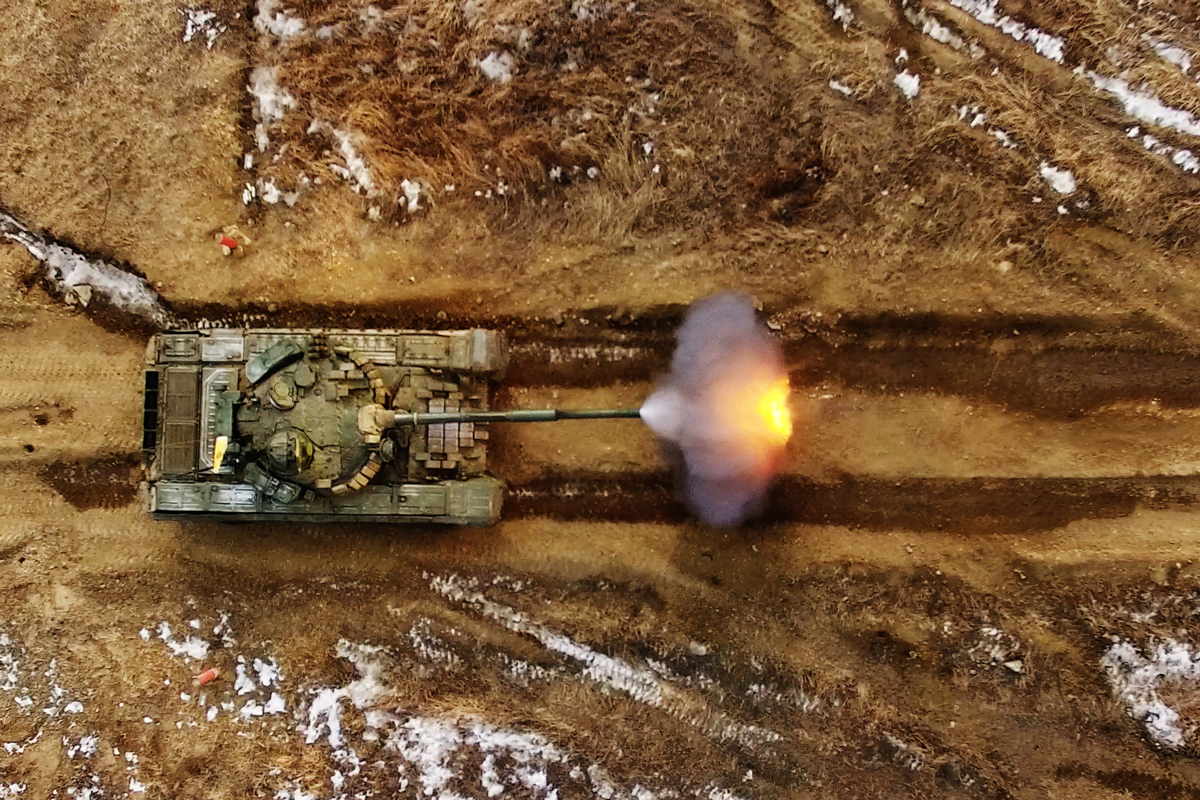
A T-72B1 tank blasts off a round as part of the 2017 Tank Biathlon Competition at the Sergeyevsky training ground. Like an Olympic biathlon, the competition involves several trials of racing and target shooting — but in tanks.
Welcome to Moscow
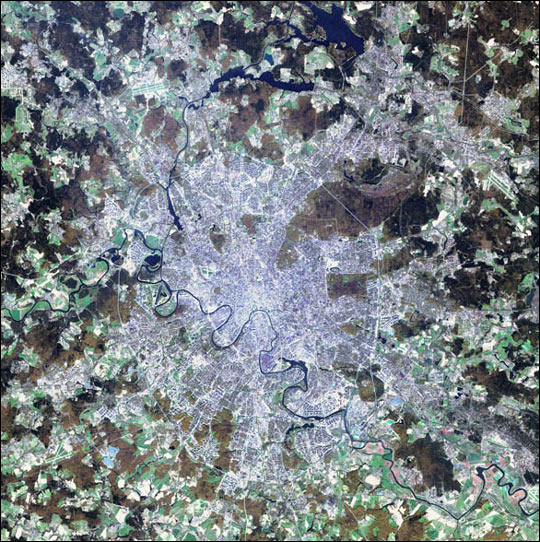
17 million people reside in and around Moscow, the capital city of Russia. First established as a trading route on the serpentine Moskva river, Moscow is now the seat of Russian government and one of the fastest growing cities in the world.
Peninsula of Ice and Fire
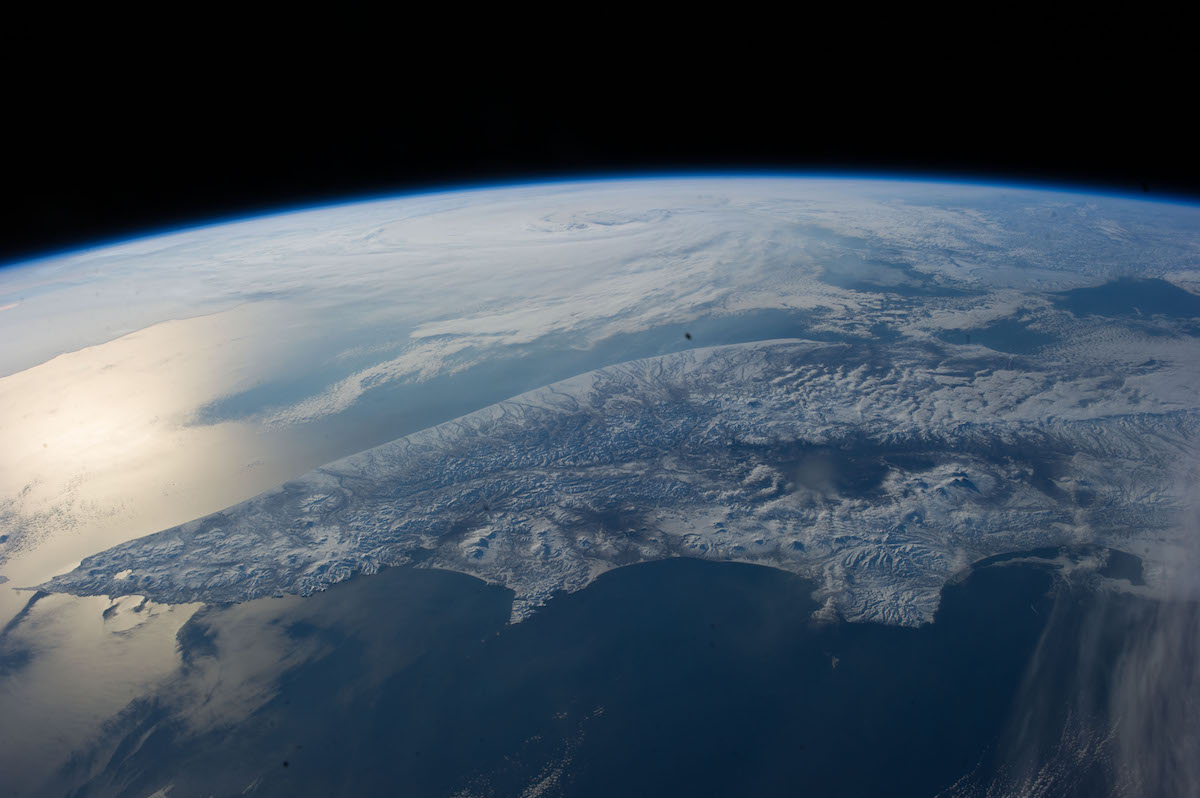
Looking West from the Kamchatka peninsula, it’s Russia as far as the eye can see. Hosting more than 300 volcanoes (29 of them active), Kamchatka is one of the most volcanically active areas on Earth.
Europe's Tallest Volcano
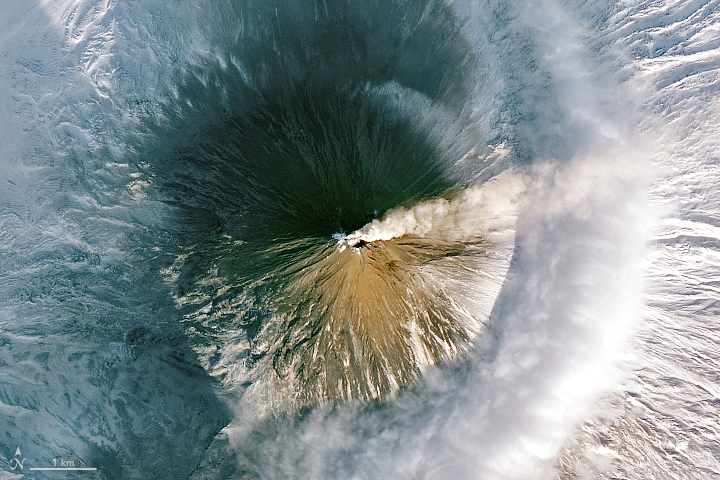
Klyuchevskaya is the highest mountain on Russia’s Kamchatka peninsula and the highest active volcano in Eurasia. It was first recorded erupting in 1679, and has been continuously active since. This plume of smoke was spotted from space on January 10, 2018.
View From The Top
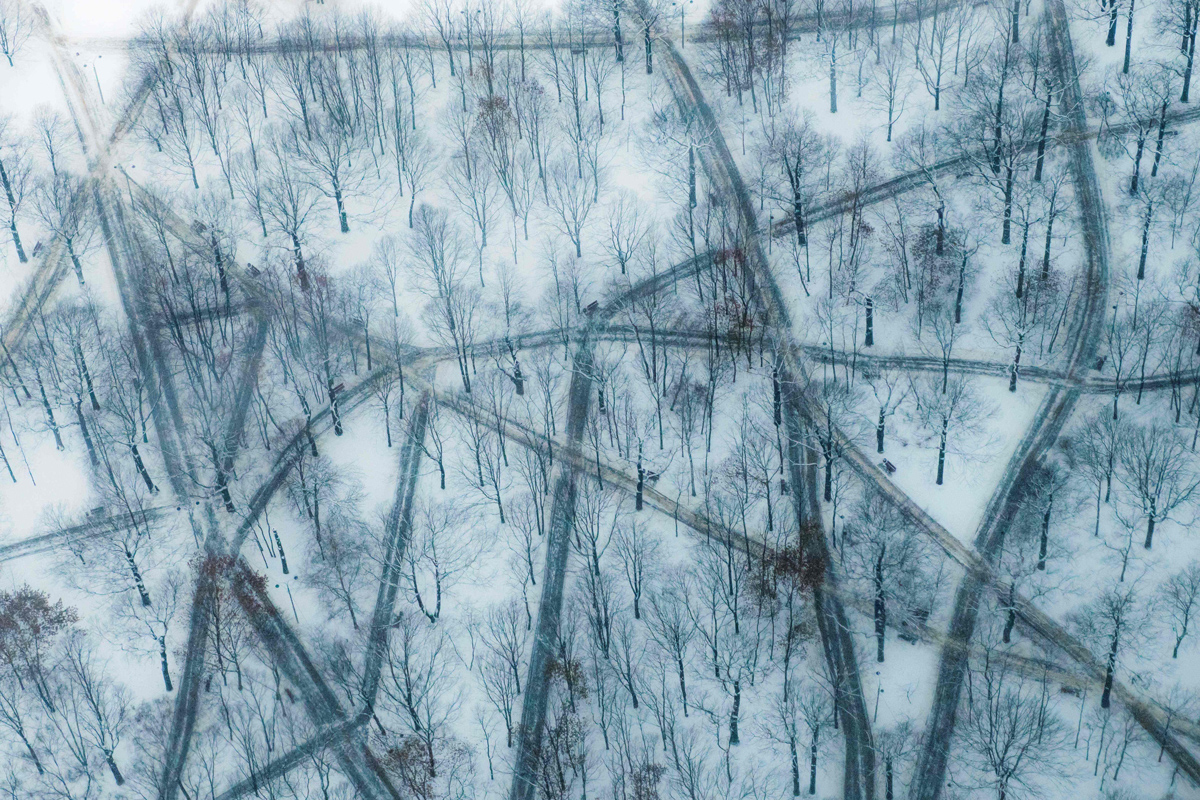
Paths slash through a snowy park as seen from the observation deck of Moscow’s 1,100-foot (337 meter) high Ostankino TV tower. The tower, which celebrated its 50th anniversary in 2017, is the tallest free-standing structure in Europe.
Sign up for the Live Science daily newsletter now
Get the world’s most fascinating discoveries delivered straight to your inbox.
Torch of Champions
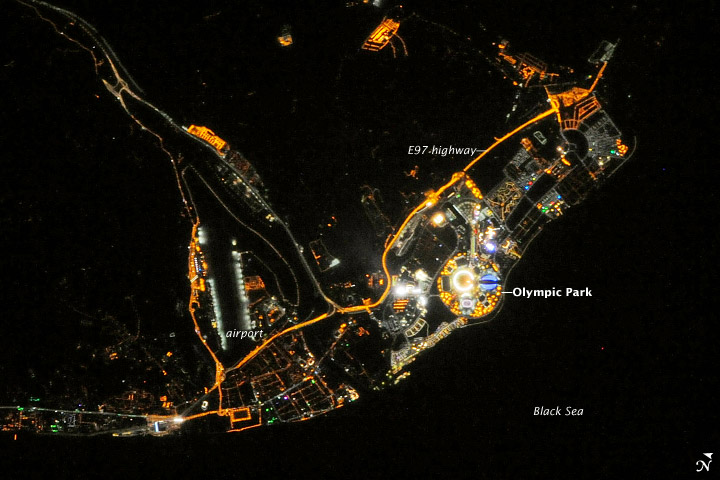
The Olympic torch can be spotted blazing from space in this 2014 shot of Sochi, Russia at night. Heated by the Black Sea that shoves apart Eastern Europe and Western Asia, this resort town is one of the warmer locations ever chosen for the Winter Games.
Aurora Over Russia
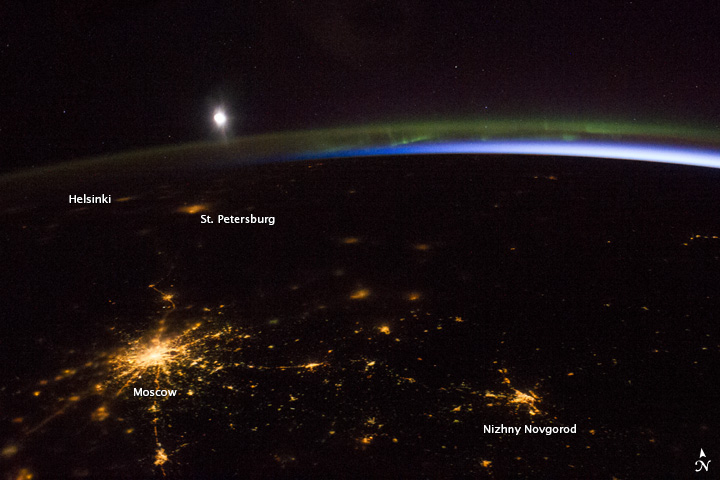
The aurora borealis shimmers green against the curvature of the Earth in this nighttime photo taken aboard the International Space Station. Russia’s capital city, Moscow, spreads like a golden spider in the foreground. Finland’s capital city, Helsinki, is visible in the upper left.
Uneven Snowfall
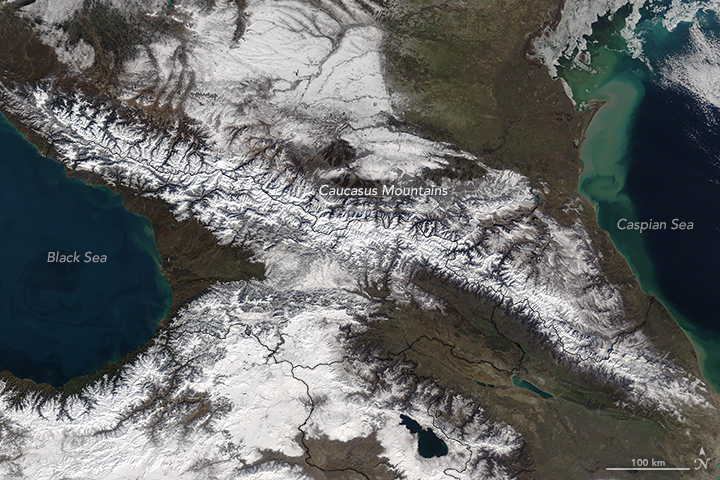
Like a natural fence, the Caucasus Mountains divide southern Russia from northern Georgia between the Black and Caspian Seas. As you can see here, snowfall on the mountains can be highly uneven, prompting some to worry that the 2014 Olympic Games in Sochi (near the Western Caucasus) would not have enough snow for the sporting events.
Siberia Burning
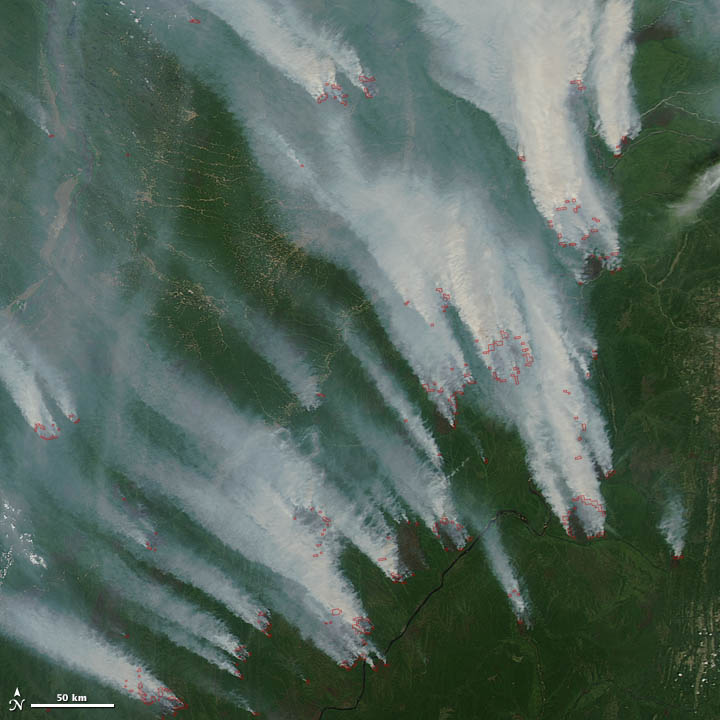
Siberia has more to worry about than blizzards. In July 2012, more than 97 square miles (250 square kilometers) of forests were ablaze in Russia, most of them in central and eastern Siberia. As in the Western Unites States, wildfires strike Siberia’s forests regularly in the late summer months.










